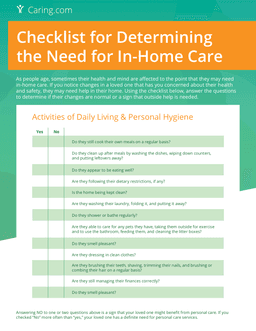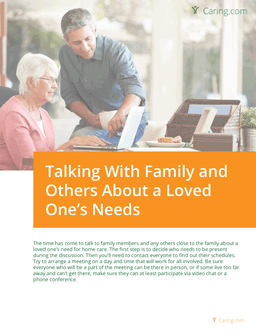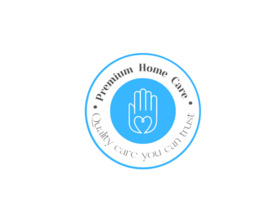The 10 Best Home Care Agencies for Seniors in Bayside, NY for 2025
Caring.com offers a free service to help families find senior care and authentic reviews to help you in your decision. On average in Bayside, NY, residents and their loved ones rate In Home Care agencies across the 63 options below.
Home Care Services in Bayside, New York
63 Results
Filters
63 Results
What you can do with Caring
Paying for Home Care in Bayside, NY
The Cost of Home Care in Bayside, NY
Home care fees in Bayside are slightly higher than the state average of $5,339. In general, seniors in New York pay more for their home care than the national average of $4,957 per month. Bayside is not the most expensive neighborhood in the city, however, and typical monthly fees in the area are more than $300 lower than in Glen Falls, which is further north. Seniors in Binghamton, Buffalo and Albany all benefit from home care fees far lower than Bayside’s average.
Bayside
$5,529
New York
$5,339
The United States
$4,957
Binghamton
$4,814
Buffalo
$4,957
Albany
$5,148
Glens Falls
$5,863
The Cost of Home Care vs. Other Senior Care Options in Bayside, NY
Seniors living in Bayside have several care options available to them. Adult day health care services cost less than $2,000 per month and provide social activities and basic support for seniors who can travel to a community center to receive their services. Assisted living facilities charge just $221 a month more than home care providers, and this cost includes room and board plus help with daily living activities. Skilled nursing care costs more than double the average cost of home care.
Home Care
$5,529
Home Health Care
$5,720
Adult Day Health Care
$1,950
Assisted Living Facility
$5,750
Nursing Home Facility (semiprivate room)
$12,471
Note: Data for Bayside was unavailable, so data for the nearest borough, Queens, New York Area, was used instead.
Financial Assistance for Home Care in Bayside, NY
Given the high cost of in-home care, many people use one or more forms of financial assistance to cover the expenses. Below, we explain some of the most common sources of financial help for paying for in-home care. If none of these options are available to you, you can reach out to your Area Agency on Aging or Aging and Disability Resource Center to learn about local resources.
- Long-Term Care Insurance: Long-term care insurance covers expenses related to senior care, including in-home care. Depending on the policy type, beneficiaries may receive a cash payment to use towards long-term care or reimbursement for qualifying long-term care expenses. Note that there are limitations- typically a maximum benefit of $150 per day- and exact coverage terms vary depending on the exact policy, so always check the details.
- Medicare: Medicare does not cover in-home care because it is classified as custodial, or non-medical, care. However, some Medicare Advantage and Medicare Supplement plans, which offer expanded benefits, may cover in-home custodial care.
- Medicaid: Medicaid coverage of in-home care varies between different states because it is not a federally mandated benefit. Currently, all states cover some in-home care either through their standard Medicaid or a waiver program. The specific coverage rules are set individually by each state.
- Veterans’ Benefits: The Aid and Attendance benefit is a monthly cash payment that beneficiaries can use to pay for senior care, including in-home care services. To qualify for A&A, Veterans must already receive the VA pension and meet several additional requirements, including needing assistance with the activities of daily living. Contact the Department of Veterans Affairs to learn more.
- Reverse Mortgages: Home Equity Conversion Mortgages (HECMs) are federally insured loans that are available to homeowners age 62 and over. Reverse mortgages allow you to access a portion of your home’s equity in cash, tax free. Many seniors use reverse mortgages to finance their care expenses, including in-home care. Note that although there are no monthly payments due on reverse mortgage loans, borrowers do have to repay the loan once the last surviving homeowner passes away, moves, or sells the home.
Bayside Home Care Resources
Home care services are only one of the pieces needed for seniors to gracefully age in place. There are many services and programs that are low-cost or free, that enable seniors to enjoy an independent lifestyle in the comfort of their own home, such as help with home modifications, meal delivery services, and more. Below, we’ve compiled a few of the most helpful resources in Bayside:
| Resource | Contact | Address | Service |
|---|---|---|---|
| Community Advisory Program for the Elderly (CAPE) | (718) 224-7888 | 20811 26th Ave., Bayside, NY 11360 | CAPE provides mental health support (therapy, psychiatric evaluation, medication monitoring) to persons aged 50 or older and their families. CAPE also provides telephone reassurance services to seniors who can’t leave their home or are otherwise socially isolated. The program is covered by Medicaid, Medicare and most other insurances. |
| Association for Energy Affordability, Inc. (AEA) | (718) 292-6733 | 105 Bruckner Blvd., Bronx, NY 10454 | AEA provides weatherization assistance to low-income households, especially those with senior citizens, to improve energy efficiency and reduce costs. The program gets annual funding from the U.S. Department of Energy. Applicants must be within the income eligibility limits. |
| New York City Housing Authority (NYCHA) | (718) 707-7771 | 478 East Fordham Rd. (1 Fordham Plaza), 2nd Floor, Bronx, NY 10458 | NYCHA helps low- and moderate-income individuals secure safe and affordable housing. There’s no cost to apply. To be eligible for senior buildings, the applicant and all other household members must be 62 years of age or older. The annual income limit for a single person is $59,750, and it increases with each additional person. |
| Catholic Charities of Brooklyn and Queens (CCBQ) | (718) 722-6001 | 191 Joralemon St., Brooklyn, N.Y. 11201 | CCBQ offers over 160 programs and services to senior citizens, including services such as friendly visiting and meal delivery for the homebound elderly. The organization receives funding from the New York City Department for Aging. |
| Home Energy Assistance Program (HEAP) | (718) 557-1399 | 165-08 88th Ave., 3rd floor, Queens, NY 11432 | HEAP provides low-income people with heating bill assistance. Eligible applicants can receive benefits from the program once per year, but they may also qualify for emergency funds when running low on fuel or are at risk of having utilities shut off. |
Determining Your Loved One’s Need for In-Home Care
Aging can be a difficult process, and loved ones may not always ask for help – often times it’s up to their family to evaluate their need for help around the house. While no two situations are exactly alike, this checklist can help you and your loved ones determine when it’s time to start the search for a home care provider.


Guidelines for Talking About In-Home Care
If you’ve determined that your loved one needs the assistance of a care provider in their home, it may be time for a difficult conversation. Handled correctly, however, this process can bring a family together and ensure that everyone’s concerns are addressed. Use this PDF as a starting point to help the conversation stay as positive and productive as possible.




